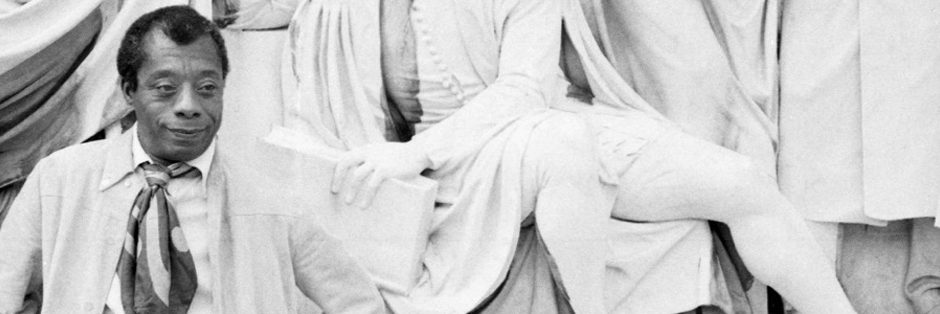The #billofsale conversation takes its starting point from the film Baldwin’s Nigger directed by Horace Ove. In the film, writer James Baldwin mentions the ‘bill of sale’ – a birth certificate of sorts. It is through this concept that this event will explore questions related to power dynamics, institutional relationships, progress and acceptance. Conversation guests are artist Barby Asante, academic Layal Ftouni and curator Rianna Jade Parker.
In the film Baldwin’s Nigger, James Baldwin recalls a story in which a West Indian man who works at the British Museum asks him where he was from.
“My mother was born in Maryland, my father was born in New Orleans, I was born in New York.” He said, “But before that where were you born?” [Laughter] And I had to say, “I don’t know.” And I could see he did not believe me. I tried to explain: you know, there is no way for me to know, he said, “don’t you care enough to find out?” And I tried to explain that, if I were originally from Dakar or wherever I was in Africa, I couldn’t find out where it was because my entry into America is a bill of sale. And that stops, you know, that stops you from going any further‘ – James Baldwin
This notion of the bill of sale gives a sense of the institutionalised nature of slavery, and provides a point of entry into the lasting legacy of white supremacy and racism. Black bodies, as property, are singularly documented through the capital that they represent. What does this mean for black identity (in a capitalist society, that in many ways resembles the economy borne out of and maintained by the Transatlantic slave trade)? How does this change the relation (of the state, the dominant culture, institutions etc) to blackness and black people? Does the state apparatus still relate to black people as property? How does this manifest itself in social power dynamics or perspectives regarding the politics of the black body today in contemporary society?
Barby Asante is a London based Artist, Curator and Educator, she studied Fine Art at the University of East London, where she began making work in film, photography and installation, placing herself in the frame as a means of confronting the audience with the perceived problem of her image. She completed her MA in Visual Culture at Middlesex University.
Layal Ftouni is currently in the final stages of her doctoral thesis at the University of Westminster where she was awarded a CREAM scholarship. She is also a visiting lecturer at the same university. Her research, titled Dismantling or Reproducing the Orientalist Canon? examines Neo-Orientalism in contemporary visual arts.
Riana Jade Parker is part of the art haus creative curators the Lonely Londoners. The Lonely Londoners are three self-actualising artists / creatives of colour moving away from theory to practice. They operate as an art haus of curators, creative directors, editors, a micro-press and distro to best embrace this new wave of potential and promise they see in all of us.
The sorryyoufeeluncomfortable Collective has programmed this event as part of their residency. The collective formed during the recent Baldwin’s Nigger Reloaded project created in collaboration with artist Barby Asante and Education Curator Teresa Cisneros and hosted at Iniva. The purpose at the heart of this initial project was to bring together a group of artists, thinkers, and makers interested in exploring questions related to both personal and societal experiences.
